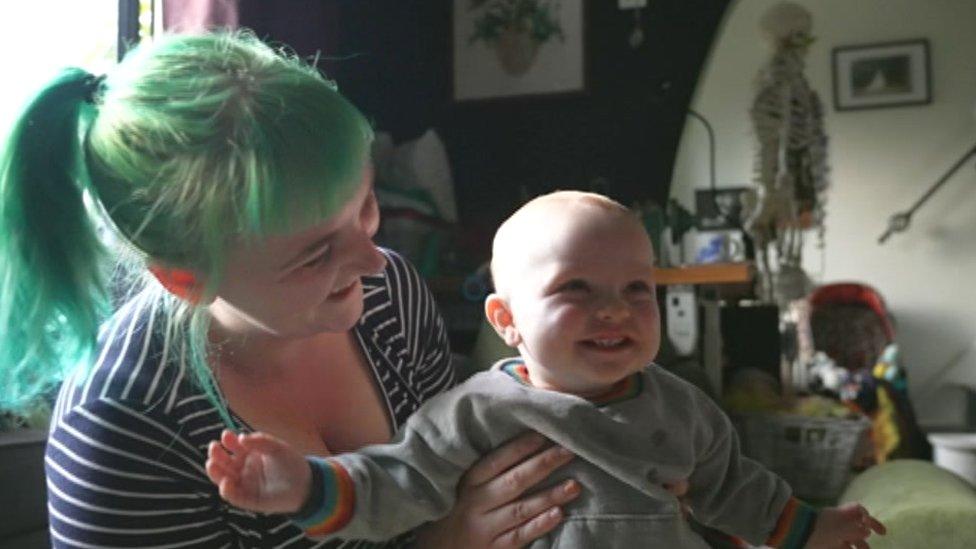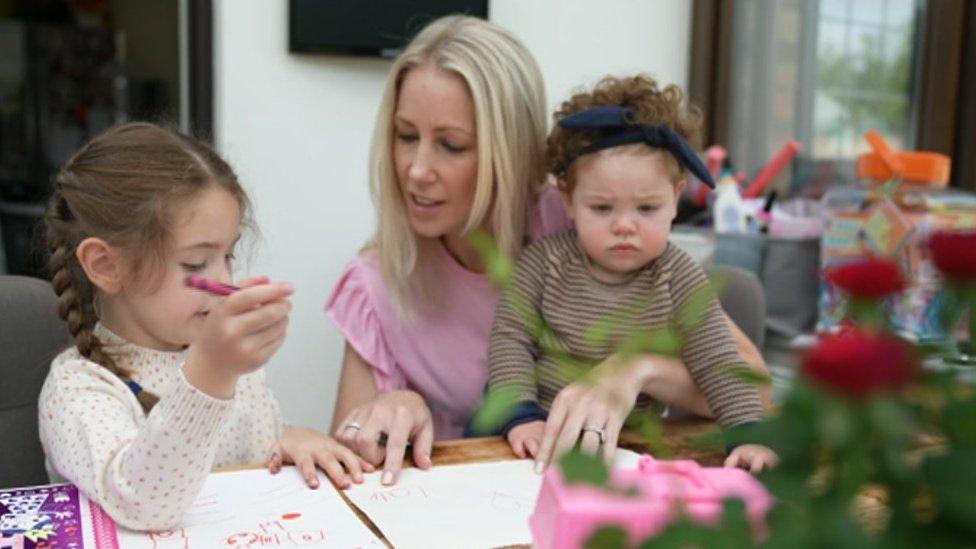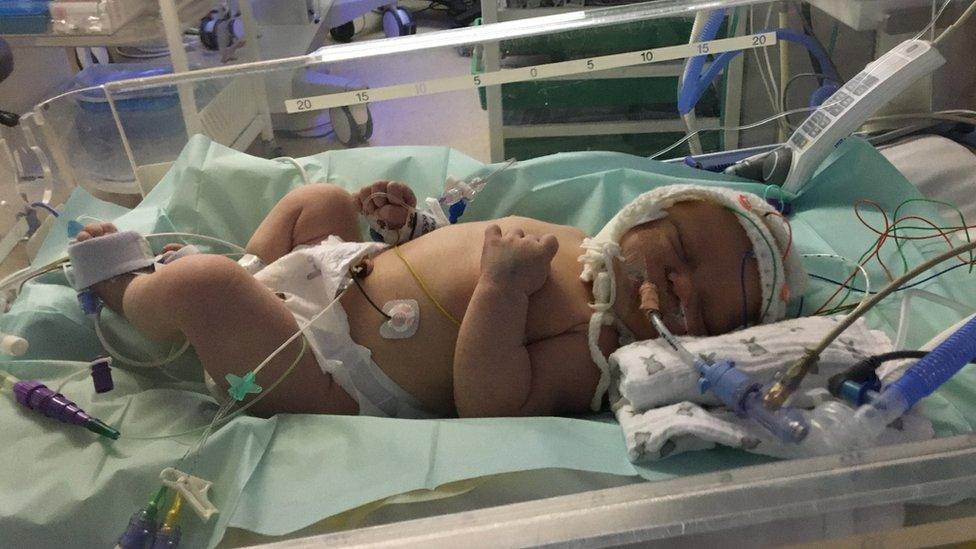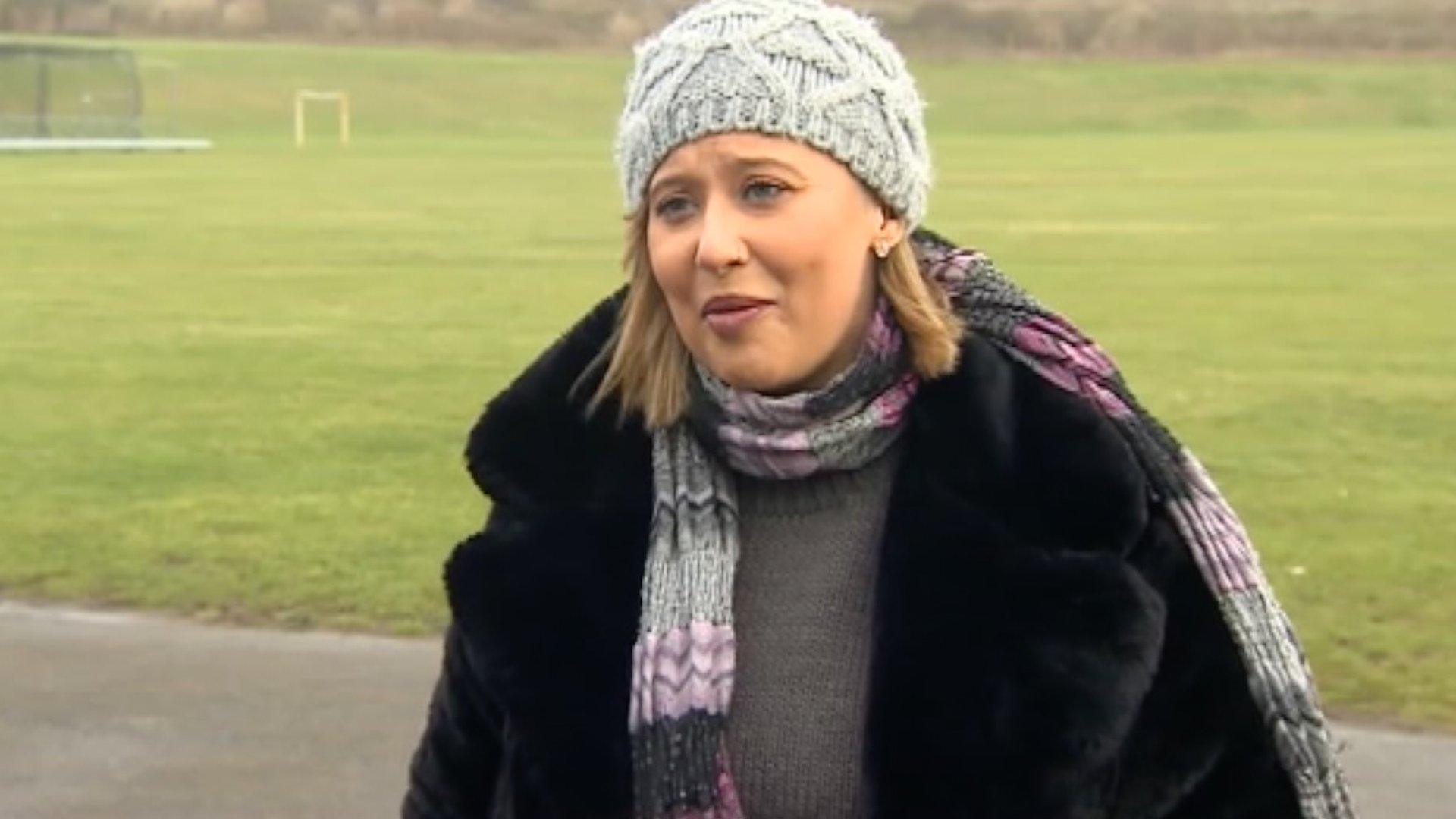Mothers warn of disorder that can cause stillbirth
- Published

Natalie Brown said her son could have died
Two mothers have shared their experiences of a poorly understood pregnancy condition that in severe cases can lead to stillbirth.
Intrahepatic cholestasis of pregnancy (ICP) is caused by a build up of toxic bile acids in the blood.
Research shows women are often not given up-to-date information on ICP and hospital policies are not standardised.
Natalie Brown said it was a "gamble" as to whether her son was going to be stillborn.
During her pregnancy Ms Brown, from Farnborough, Kent, was told she had to wait nearly three days after receiving blood test results that showed her bile acids had spiked dangerously high.
Her son was born healthy but Ms Brown said she felt "very lucky".
"If I could go back now and do it again, I would not have accepted it and I would have insisted he was born that night. I would have pushed more," she said.
The main symptom of ICP is itching that is often more noticeable on the hands and feet.
Isabel Farmer, who lives in Warlingham, Surrey, but is originally from Lewes, East Sussex, had ICP in both pregnancies and described the itching as "constant" and "not the kind of itch that you can scratch away".
A survey conducted by the charity ICP Support in June 165 women in the UK showed nearly a third of women were told itching in pregnancy was normal and 96% were not given the most up-to-date information.

Isabel Farmer was 35 weeks pregnant when she noticed a severe itch
Jenny Chambers, the chief executive of ICP Support, said hospitals currently wrote their own policies on the condition.
"If they used a standardised policy, that would ensure that women received standardised care and we think that would help to reduce the anxiety that accompanies this condition," she said.
Bile acids are produced in the liver and flow to the gut to help digest food, but in ICP they build up in the blood instead.
There is no cure for ICP but it generally resolves itself after the birth.
However, some studies show a link between ICP and an increased risk of stillbirth or premature birth, meaning some women are offered to have their labour induced.
Ms Farmer said the uncomfortable condition made her depressed and anxious.
"It doesn't matter what you do, you don't sleep," she said. "There's that side of it, and then there is the fear for your baby."

Follow BBC South East on Facebook, external, on X, external, and on Instagram, external. Send your story ideas to southeasttoday@bbc.co.uk, external.
- Published21 June 2023

- Published9 August 2023

- Published4 May 2022

- Published29 January 2021

- Published12 June 2023
